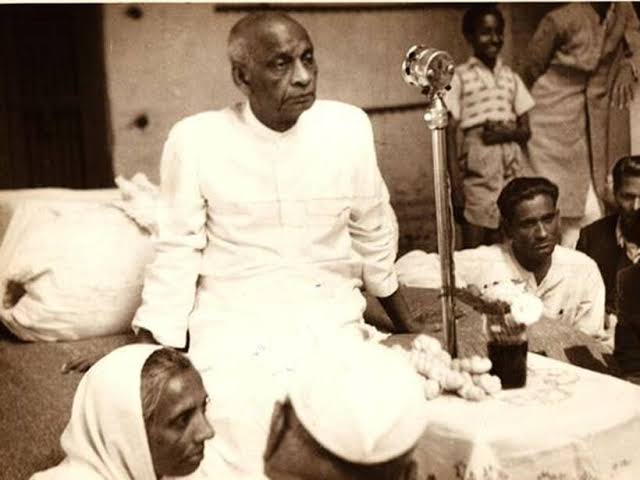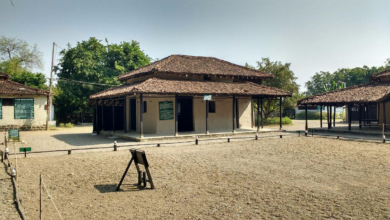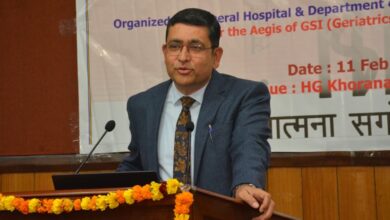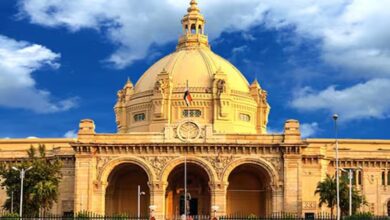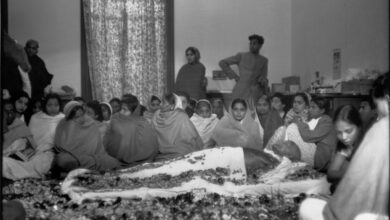Sardar Vallabhbhai Patel: Harbinger of Unity & Salvation of India
Dr. Ravindra Kumar*
“You must remember that freedom, which you have won also entails responsibilities…(for), the people must conduct themselves in such a manner as to deserve the new freedom. There should be mutual understanding and toleration and a recognition of the common interests of all…” –Sardar Vallabhbhai Patel
Sardar Vallabhbhai Patel single-handedly steered the merger of more than five hundred fifty Princely States into the Union of India after her freedom from the English on August 15, 1947 and built unprecedented political unity of the country. Due to this phenomenal work, he earned respect as the Maker of United India.
This mammoth task could be possible on the basis of high and matured political approach of Sardar Vallabhbhai Patel in the centre of which were the unity, integrity, prosperity and security of the country –both internal and external. Further, he could accomplish this matchless job by getting his compatriots, general and elite, realized of their duties towards the nation especially putting the service towards the people of the country having toleration, the ancient value of India as the nucleus. A short statement of Sardar Patel himself, quoted at the commencement of this short discussion well reveals this fact.
Along with the merger of more than five hundred fifty Princely States into the Indian Union covering the area of approximately six lakhs square miles, the Sardar managed the exchange of lakhs of people and made arrangements for relief and rehabilitation of lakhs of refugees who came from the Pakistan side to India after the division of Bharat into two. He reminded his compatriots their duties in the independent India and called on them repeatedly to discharge responsibilities for the safety and welfare of one and all. With regard to discharging duties, Sardar’s message to the people of the country through his public address at Cuttack, Orissa on December 14, 1947 was quite important and meaningful; that is significant till today. The Sardar said, “we have achieved Swaraj and we have to reap the fruits of it” by well performing our duties… “India is now free and independent…with united will and hard work (taking it as your foremost duty) you will make the country prosperous…you should (now) all sink your differences and work hard in common interest” …and for the unity, security and prosperity of the nation.
Soon after the independence of India a serious problem had arisen in the process of the exchange of population in the East Punjab. A large group of people –huge caravan going towards Pakistan from India was suddenly stopped in Amritsar, which also created great danger or risk for lakhs of refugees coming to India from other side. In such a serious situation, Sardar Vallabhbhai Parel visited the city of Amritsar. The same day, on September 30, 1947 in a public meeting he called on people to behave with toleration in the large scaled wellbeing of the people taking it as their sole responsibility towards the nation. He made them realize the reality, and the manner in which he successfully resolved the problem, very serious indeed, was uniquely remarkable. His strategic move, taken wisely, is still significant and worth following.
In his address first of all the Sardar said, “We have won our freedom to make our country great and prosperous, not to destroy what little has been vouchsafed to us by our alien rulers. If we are not careful, we shall lose even our long-cherished freedom, which we have secured after such suffering and so many struggles. You must remember that lives of millions are at stake; they cannot be gambled away to enable us to satisfy any spirit of vengeance or retaliation. It is essential that you must maintain peace and break the vicious circle of attack and retaliation and counter-retaliation and see to it that the refugees have safe transit.” Further, with the purpose of getting them realized the sense of humanity, the Sardar said, “To fight against the refugees is no fight at all. No laws of humanity or war among honourable men permit the murder of people who have sought shelter and protection…you (should, therefore) act with prudence and foresight.”
The Sardar made special appeal to them to have enough toleration, one of the basics of Indianness, and throw in their weight for the maintenance of peace in the interest of millions of men, women and children, and put energies for the unity and solidarity of the nation. His call had an immediate and desired effect on the hearts and minds of the people. A serious problem was, more or less, resolved immediately.
After the independence, India had a number of serious problems before her. Along with building the unity of the country, as we have mentioned, there were challenges like maintaining law and order, restructuring the cadres of Civil Services and securing the country from internal and external anti-national elements. But, Sardar Patel, having national unity and public interest as the supreme in his thoughts and works, recorded victory over all of them one-by-one on the basis of his vision and mature national political approach, and established himself as a man of the era.
Sardar Vallabhbhai Patel is known as the Iron Man. He was in reality a man of iron-will, indomitable courage and firm determination. He took many hard decisions for the unity, integrity, security and prosperity of the country. However, he had no individual animosity with anyone; he did not have personal hatred for anyone.
Human-love was in his nature. This was his great quality, which reflected in the sense of toleration he so proudly possessed. On the basis of this great virtue, he was able to establish unprecedented national unity of India. He saved the country from a number of serious problems, which could be blasphemous in the absence of his wisdom. While remembering the Sardar –paying tribute to him for his great vision and works, one should also get acquainted with the level of toleration he had in him.
*A Padma Shri and Sardar Patel National Awardee Indologist Dr. Ravindra Kumar is a Former Vice Chancellor of CCS University, Meerut; he is also the Editor-in-Chief of Global Peace International Journal.

